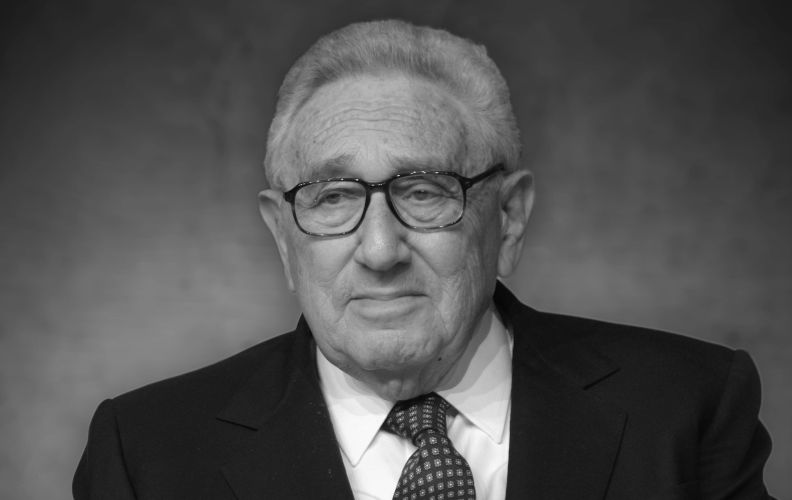The unflinching cruelty of Henry Kissinger

Henry Kissinger’s death has brought a flow of predictable judgements: ‘He created some evils – 1973 Chile, for example. But overall he helped end the Cold War.’ And as a beneficiary – the 1971 opening to China, for example – Australians should be grateful.
His non-Anglo background and his experience in dealing closely with a variety of world leaders gave him a sophistication not found among our own diplomats who to their eternal disgrace opposed the China opening.
But it also endowed him with an unflinching cruelty and cynicism.
Take the much-quoted remark by the US author Anthony Bourdain after visiting the areas hit by Kissinger’s secret bombing of Cambodia: “Once you’ve been to Cambodia, you’ll never stop wanting to beat Henry Kissinger to death with your bare hands. You will never again be able to open a newspaper and read about that treacherous, prevaricating, murderous scumbag sitting down for a nice chat with Charlie Rose or attending some black-tie affair for a new glossy magazine without choking. Witness what Henry did in Cambodia – the fruits of his genius for statesmanship – and you will never understand why he’s not sitting in the dock at The Hague next to Milošević.”
I saw the origins of Bourdain’s anger. Invited to visit a B52 bomber crew in Andersen base, the Philippines, in 1972 I heard how their lives revolved around leaving their porn-plastered cabin before dawn, flying six hours to Cambodia, dropping their bombs and returning in time for the steak dinner and the Filipino band.
‘Just straw huts and pretty green fields down there’ one said. Others have given us a more accurate account – bombers arriving silently from the clouds and leaving craters filled with human remains and debris.
Here in a nutshell is the contradiction of so much Western foreign policy. We like to feel those policies – whether over Korea, Vietnam, Ukraine or Gaza – are justified even if they involve dreadful bombing and destruction because they have been provoked by the far greater crimes and atrocities committed by the other side. But when we look at the origins of these disputes inevitably they require us to ignore far greater evils on our side – evils which become obvious to those like Bourdain who see the results of what our side has done.
In Korea we followed the former brutal Japanese colonists in promoting a regime whose massacres of suspected pro-communist opponents were too horrible even to relate; one rightwing UK journalist found it easier to say the massacres were by the pro-communists. In Vietnam pro-communist forces only won out after years of fighting against the cruel enemy which Anthony Bourdain partly saw close up. In Ukraine pro-Russian citizens had to fight a lonely eight year battle against ex-Nazi forces before a belated Moscow intervention, described as unprovoked aggression.
In Gaza the blame game is well advanced. The brutal government bombings are set against the allegedly far greater brutality of an October 7 Hamas uprising caused by extremists who have to be exterminated.
But as in most of these conflicts few seem interested in going back to the original causes. In Israel it should be obvious. The West decided to hand over a piece of Palestinian territory to a Jewish minority and the fighting has been continuing ever since. In the process both sides have created a hardcore determined to wipe out the other.
Instead of extermination the only solution seems to be a repeat of the 1982 solution which was to evacuate the bulk of PLO forces active in the Lebanon civil war to Tunisia.
Meanwhile we have to confront the reality before our eyes and which has been obvious ever since the Jewish influx to former Palestinian territories. It is a reality of injustice and cruelty alleviated only by half-hearted efforts to impose legal and democratic norms.
True, some Palestinian extremists may be guilty of unforgivable violence. But are we all bereft of commonsense? Mistreat human beings fairly consistently – illegal land seizures, endless checkpoints, wilful destruction of property – for years on end and eventually the hatreds will become uncontrollable as we saw with the Khmer Rouge in Cambodia.
Events usually have causes. The Western propensity to ignore the causes and complain about the results could eventually turn round and bite us where it hurts.